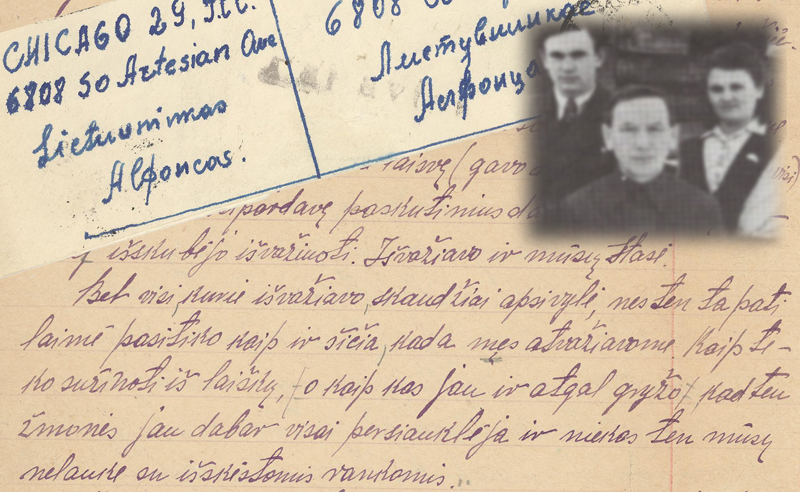Not returning to Lithuania
Posted on February 26, 2012
The story of the Marmas family was discussed previously in this blog series of letters from Siberia. In the picture, Jonas Marmas sits, flanked by two of his children. He wrote, from the Krasnoyarsk Region of Siberia, to Alfonsas Lietuvninkas, in Chicago:
“October 27, 1957. We received our documents and can return to our homeland. We were extremely happy, as were others. Several, having sold all their possessions to purchase train tickets home, hurried to leave. But all of those who left, were sadly disappointed. What met them in Lithuania was the same ill fortune that met us here when we arrived in Siberia. We learned both from letters, and from those who have returned to Siberia, that the people in Lithuania have changed, they have been re-educated. No-one is waiting for us to return with outstretched arms. In the immediate future, we have no plans of returning to Lithuania.”
Hundreds of thousands of innocent Lithuanians, many millions of innocent individuals across Eastern Europe, lost all their possessions, and were deported to face slave labor, and almost certain death. In their letters, they constantly dream of returning home. It was startling to come across this entry, and many others with similar content. Upon reflection, it is clear what had happened over the intervening decade, or more. All of your personal possessions were either destroyed or confiscated by the state–meaning, you have no physical place to return to. Your friends and relatives, just like yourself, were deported, killed, or fled from Eastern Europe–leaving very few of your past acquaintances. Under these circumstances finding work was also very difficult.
And then the ultimate insult added to injury, “they have been re-educated. No one is waiting for us to return.” One must remember that all letters were read and censored. The actual meaning of these last sentences, is that upon returning to Lithuania, you are considered a convicted criminal who has served his time. Because you owned something, such as a violin, a piano, a small family farm, or had some degree of education, you were convicted as being a criminal against the state, and were deported. Once a convict, always a convict. Such was the new Soviet society.



